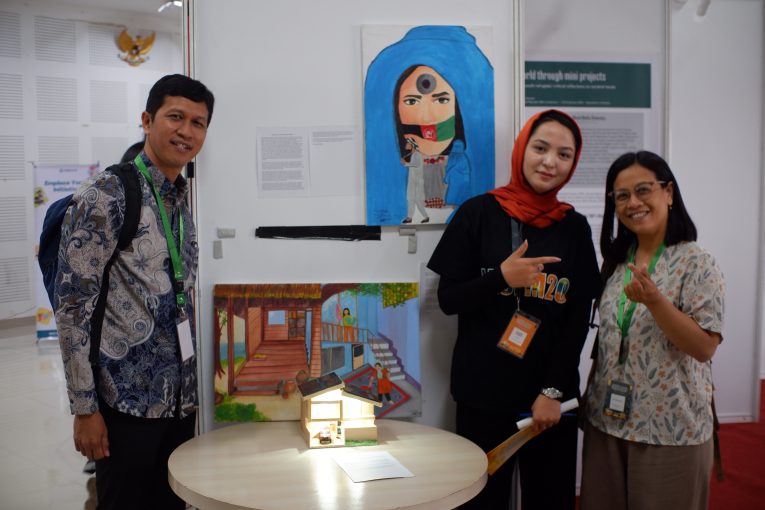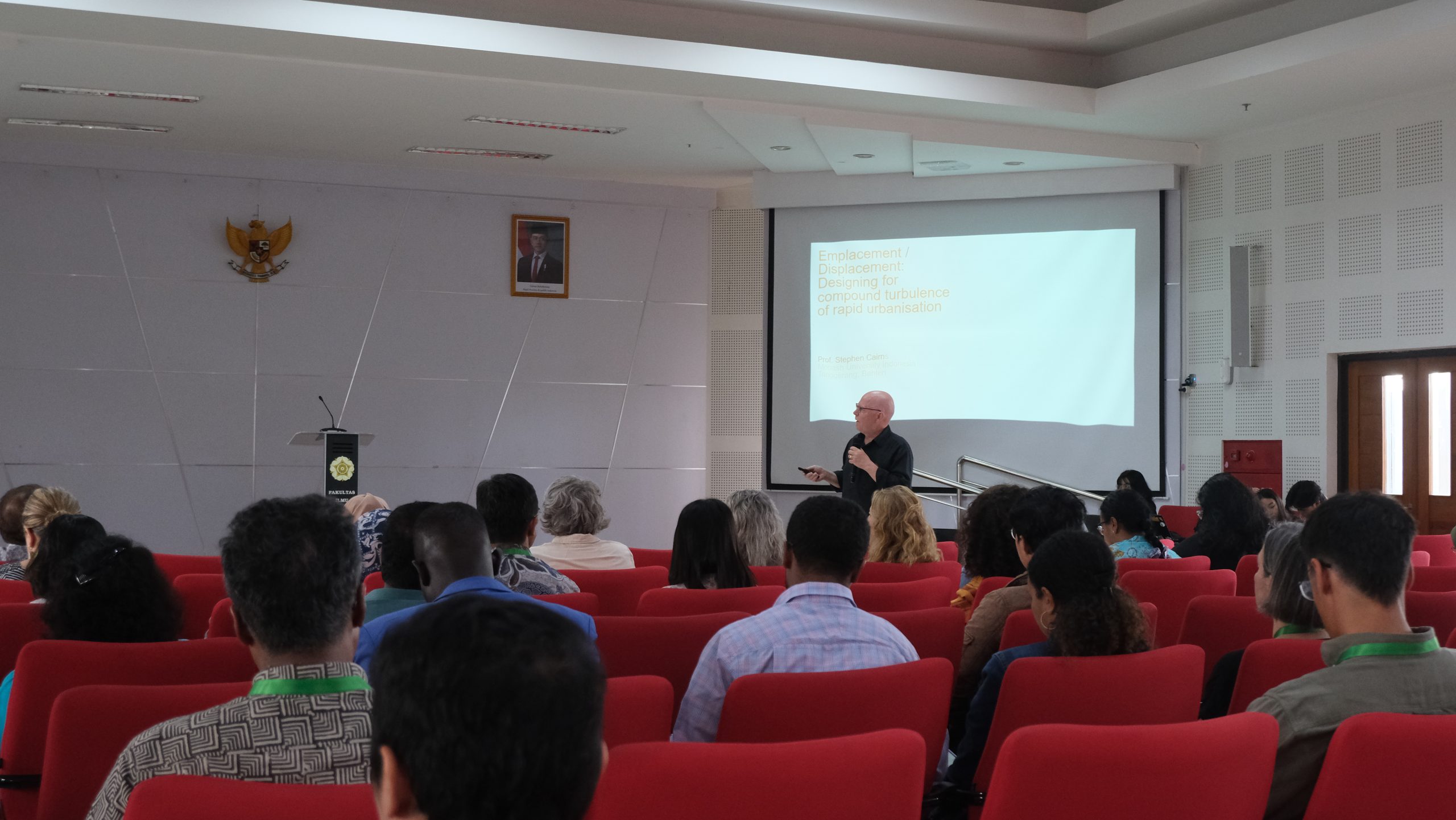
Yogyakarta, 22/1/2025 – The second day of the 20th International Conference of the International Association for the Study of Forced Migration (IASFM20) was held on Wednesday, January 22, 2025 at the Faculty of Cultural Sciences, Gadjah Mada University, Yogyakarta. A series of agendas on the second day included public lectures, plenaries, various parallel and virtual sessions, and a welcome by the Resilience Development Initiative Urban Refugee Research Group (RDI UREF).

Department of Anthropology UGM Documentation
The first agenda on the second day was a public lecture entitled “The Urban Perspective on Forced Displacement” delivered by Prof. Dr. Stephen Cairns, an academic from Monash University Indonesia who has expertise in urban and architectural studies at the Soegondo’s Auditorium, Faculty of Cultural Sciences, Universitas Gadjah Mada. Prof. Dr. Stephen Cairns has conducted several studies focusing on the overlap between architecture, urbanism, and environmental sustainability with a strong emphasis on Southeast Asia. Prof. Cairns has contributed extensively to urban studies, particularly in understanding city dynamics in the context of climate change and sustainability.
Before continuing with the coffee break session, there was a plenary session with the topic “Reflection on the (Re)conception of Urban Displacement and the Right to the City”. The plenary session began with the presentation of the material “Cosmological Markings and Erasures: The Politics of Heritage, Gentrification and Displacement in Yogyakarta’s Kraton” which examines a study on the reconstruction of the fort wall around the Yogyakarta Kraton area. There are three main elements discussed in the delivery of presentations at this plenary. First, the reconstruction is related to economic development based on tourism. Second, planning and development have been characterized by observations to create and recreate the authenticity of the built environment. Third, the project appeals to the authorities because the Sultan, the sovereign leader of the Province and owner of the land that used to be palace grounds, is respected and known for his kindness in terms of public housing.
The second presentation was delivered by Marco Kusumawijaya, a professional and activist in the fields of architecture, environment, art, cultural heritage, planning, and urban development. He delivered a presentation titled “Gentrification + Suburbanization = Ab-urbanization” which discussed the population shift from depleting city centers to increasingly dense suburban areas in several small, medium, and large cities in Indonesia. The current trend, driven by neoliberal gentrification and suburbanization, is resulting in “ab-urbanization”, urbanization “away from the city” that is getting further and further away without boundaries.
In the last presentation, Prof. Dr.-Ing. Wiwandari Handayani, a professor at the Department of Urban and Regional Planning, Faculty of Engineering, Diponegoro University, explained that land subsidence in several major cities along the north coast of Java reaches 15 cm per year because it is very vulnerable to the impacts of climate change. According to him, this pressure is exacerbated by the rapid urbanization taking place in Java, where it is recorded by the Central Bureau of Statistics that 56.10% of Indonesia’s population inhabits Java in 2021. This double pressure exposes northern coastal residents to higher threats. However, despite these challenges, migration or mobility has not emerged as a solution to address environmental risks for communities living in coastal areas.
With the end of the series of public lectures and plenary sessions on the second day of the 20th IASFM International Conference at Gadjah Mada University, it is hoped that participants will increasingly realize the complexity of the challenges faced by communities affected by forced migration in urban areas. The various perspectives raised, ranging from gentrification, environmental change, to the right to the city, emphasize the need for a multidisciplinary approach in finding sustainable solutions. This conference is not only a space for exchanging ideas, but also a momentum to strengthen collaboration between academics, practitioners, and policymakers in designing more inclusive and equitable strategies for affected communities.
[Public Relation of Faculty of Cultural Sciences, Muhammad Ebid El Hakim]

